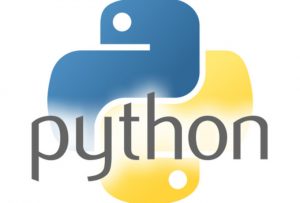It has been widely recognized that Bangalore, the ‘Silicon Valley of India’, has also become the analytics and data science hub of India. The entrepreneurs and venture capitalists are all becoming predominantly concerned with big data. And the industry is shaping up pretty well. It has a very good outlook. The analytics firms are generating healthy revenue; the gross value of the market is predicted to reach $57 billion by 2020; a lot of Indians are employed in and out of the country. A lot of companies have actually responded to the call of modern technology. Analysing data to customize services and products seems to be the way to stay ahead of the flock. Businesses will keep on making money and that is fine but what makes us so excited about the analytics industry is the fact that it is creating job opportunities for youngsters and showing a way of penetrating the market to the would be entrepreneurs.
Just when it all looks so good we start to think that there must be a problem, a natural obstacle which is a characteristic feature of every fairytale. In this case there are quite a few. We will focus on a couple of those visible issues that can feel a bit ticklish.
The lack of professionals with indispensable skills
This sounds like the same issue of impending scarcity of workers that has been disturbing the whole world. Yes, it is that issue but a little more than just that. If we think about the current threats of future personnel shortage around the globe, we must also remember that the technology developed by that time might just do away with that issue. Well, I have no intention of turning this into a philosophical discussion out of a science fiction novel, but right now we need to be more concerned about quality than quantity. The analytics industry will only contribute to the nation if it employs the people; not if it just earns profit through machines. So it is time that the attitude toward analytics education changed a bit. It is not just a casual option for aspiring students – it is a serious career opportunity and a lot depends on it. Aspirants need to be counselled and suggested with the most appropriate discipline of data science studies by the institutes. Analytics institutes in India need to take more responsibility than just handing out the material. When a student finishes a course or a couple of them from an institute, we should get a person ready for a job – an employable human being who can add something that only human beings can. If a student gets Python training in Bangalore he should be successfully able to fill a vacant place. The training system has to be thorough as well as balanced.
The intangibility of results
This is a hard one. Data architects and engineers are developing structures to fit data; data scientists are analysing data to find insights; but are those insights increasing the profits. Global statistics will tell you, yes they are – the companies that are not adapting analytics are losing 20% of their probable profit. One must understand that these statistics are general and might not work for every enterprise. Often so happens that a company invests for an analytical campaign and ends up storing and processing a lot of data. But eventually, finds out that it did not help the company in anyway. If we try to trace this problem to its root, we will see that there lies a lack of meticulous planning. Every different industry has a distinctively featured market. The consumer does not think about deodorants as s/he thinks about automobiles. Transaction details, social media clicks, YouTube likes and dislikes should tell you a general story but you need to dig deeper into the customers’ creed, social background, beliefs, and mental orientation in order to actually know them. This applies if a company is engaging in detailed individual analysis of their potential or present consumers. The approach should be completely different when you are targeting a larger consumer base at a time.
So, these are things that an analytics team needs to keep in mind. The Indian analytics scenario looks well off right now but if these issues are not dealt with, the whole thing might fall apart even before flourishing to its full potential. The students and trainees need to take a responsibility to prepare themselves to be more than just tool-operators, they need use their brain to its fullest analytical strength. Whether you are undergoing appropriate Python training in Bangalore or SAS training in Delhi you need to be focused, intuitive and meticulous.





